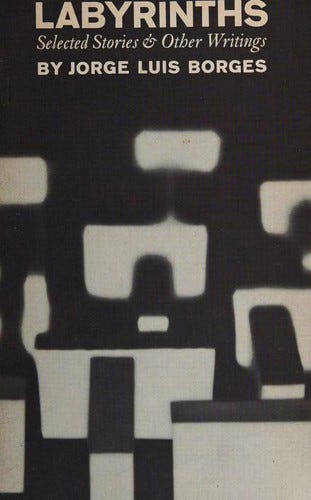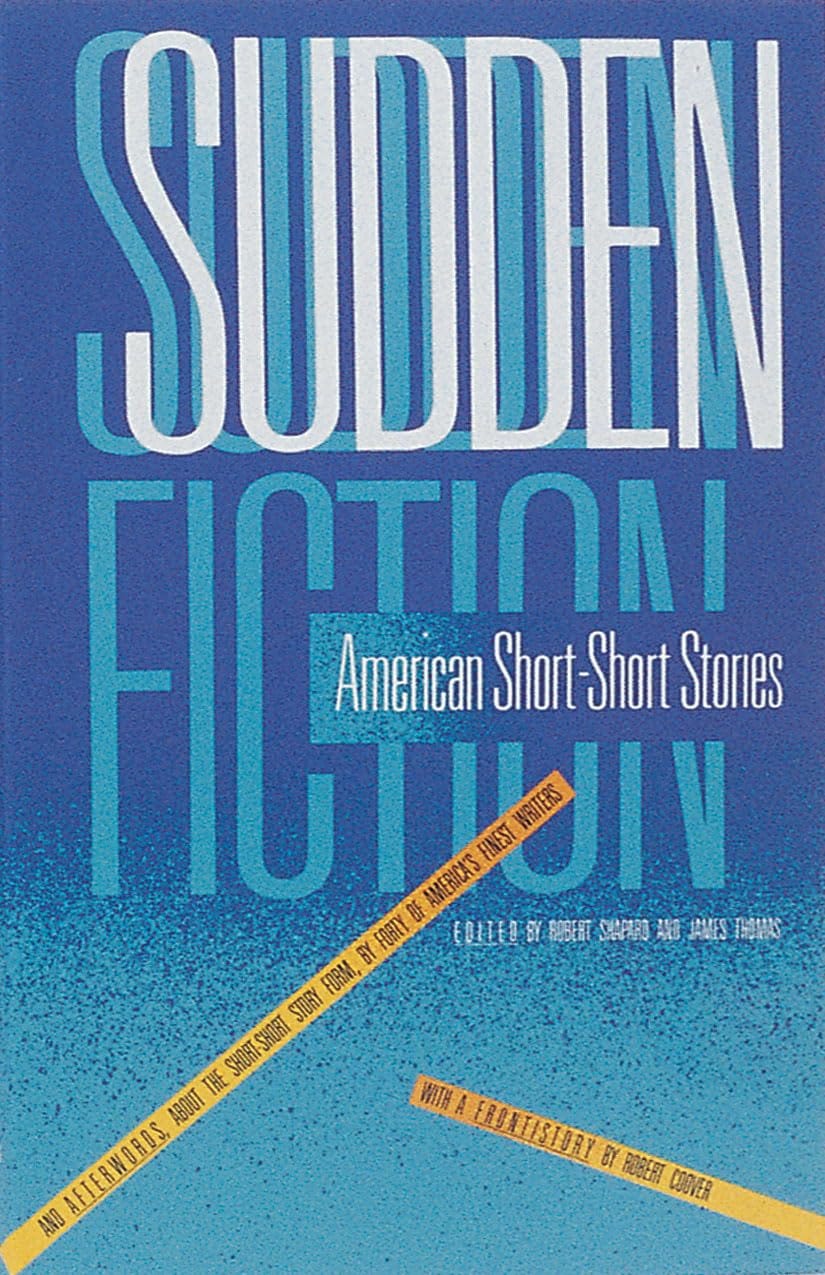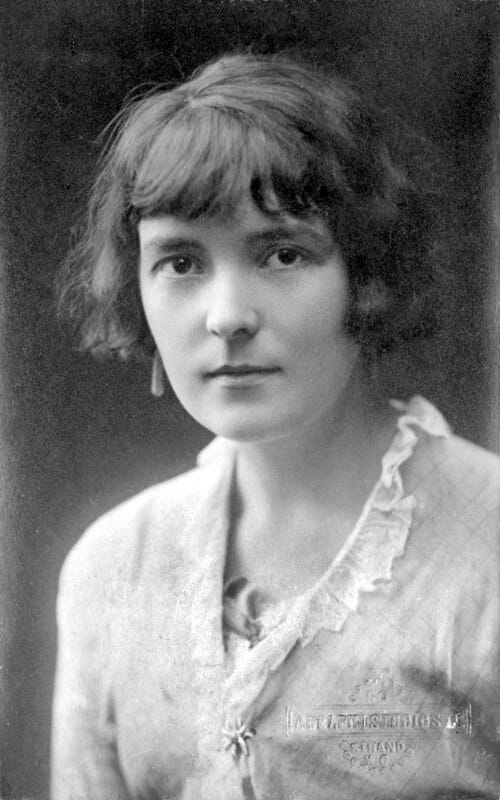Going off-grid for a few weeks. See you all again the second week of August.
Taking two books: Little, Big [John Crowley, 1981] and H. W. Brands’, Our First Civil War: Patriots and Loyalists in the American Revolution (2021).
Thanks again for your loyalty and moral support! Be well.
1. Aaron Burch’s Substack, Short Story, Long
Aaron asked his contributors to list their favorite 21st C. stories.
As I went through the titles, I realized I’d read some of the writers,1 but none of the stories. In other words, there was no overlap between their favorites and my favorites.
I gave that some thought.
I guessed that most of Burch’s story recommenders were born since 1980, and it made sense that they’d want to concentrate on writing from their own era. Then I pictured myself in 1982, the year I turned 34 and published my first book of stories, Home Fires.2
I was exclusively a short story writer then, actively soaking up the work of my peers and elders. I read stories in magazines, stories in the Best American Short Stories, the O. Henry Prize Story collections, the annual Pushcart Prize anthology, along with a stack of regional and/or theme-oriented anthologies, and collections by writers I admired (Updike, Munro3, Carver, others). And two major anthologies Gordan Lish edited: New Sounds in American Fiction4 (1969) and All Our Secrets Are the Same: New Fiction from Esquire (1976).
In those days, you submitted stories by mail, waited (and waited and waited); when a story came back you sent it out again (until it looked so bedraggled you typed up a new clean copy), wrote a new cover letter. Online submissions didn’t begin until the late 1990s.
I sent stories to magazines such as The Atlantic, The Sewanee Review, fiction international, The Carolina Quarterly, The Denver Quarterly, Antaeus, Canto, The Northwest Review, and so on.
2. Why No Overlap?
There were two obvious reasons why these recent lists and my mine had different stories.
During the years I wrote novels, my story-reading plummeted.
The age gap. I was born in the late 1940s, making me roughly forty years older than most of the writers in Burch’s survey. Assuming they’re like I was then, they read their peers and younger elders and mentors, gradually acquiring a personal treasury of short-fiction touchstones. [And then I remember picking through the anthologies touted by my elders, which contained writing by their elders—there were a handful of killer stories (Hemingway’s “A Clean, Well-lighted Place,” Fitzgerald’s “Babylon Revisited,” James Baldwin’s “Sonny’s Blues,” and a few others by writers I’d later come to know, but most of the stories were by writers I’d never heard of . . . and still haven’t.]
3. About the List:
I’m thankful for the lists Burch posted. I offer in trade a list the short stories I’ve most admired and learned from over the years. Some you know well, a bunch more you probably don’t—my fond hope is that you’ll look some up and add them to your personal story vaults.
Since the Short Story, Long suggestions are, by definition, stories of this century, the ones here were published in the 1900s.
Finally, I’m skipping the publication data for all but a few—most are easily findable. If you’d like help with that, message me.
SIXTY SHORT STORIES FROM THE 20TH CENTURY
“People Like That Are the Only People Here,” Lorrie Moore [1997]
“Brokeback Mountain,” Annie Proulx [1997]
“The Falls,” George Saunders [1996]5
“Bullet in the Brain,” Tobias Wolff [1995]6
“The Angel Esmeralda,” Don DeLillo [1994]
“In the Gloaming,” Alice Elliott Dark [1993]
“We Didn’t,” Stuart Dybek [1993]7
“I Want To Live,” Thom Jones [1993]
“The Age of Lead,” Margaret Atwood [1991]
“Silver Water,” Amy Bloom [1991]8
“Attraction,” David Long [1991]
“Tall Tales From the Mekong Delta,” Kate Braverman [1990]
“Car Crash While Hitch-Hiking,” Denis Johnson [1989]
“The Elephant Vanishes,” Haruki Murakami [1980-1991]
“A Story About the Body,” Robert Hass [1988]
“A Touch of the Flu,” Joyce Carol Oates [1988]
“Twenty Minutes,” James Salter [1988]
“Honeymoon in Tramore,” William Trevor [1987]
“Nebraska,” Ron Hansen [1986]
“Flight,” Thomas McGuane [1986]9
“The Things They Carried,” Tim O’Brien [1986]
“The Way We Live Now,” Susan Sontag [1986]10
“Miles City, Montana,” Alice Munro [1985]
“No One’s A Mystery,” Elizabeth Tallent [1985]11
“The Hector Quesadilla Story,” T. C. Boyle [1984]12
“The Man in the Moon,” William Maxwell [1984]
“Lust,” Susan Minot [1984]13
“Dr. H. A. Moynihan,” Lucia Berlin [1983]14
“A Father’s Story,” Andre Dubus [1983]15
“In the Cemetery Where Al Jolson Is Buried,” Amy Hempl [1983]
“Sur,” Ursula K. Le Guin [1982]16
“Yours,” Mary Robison [1982]
“Deaths of Distant Friends,” John Updike [1982]17
“A Vermont Tale,” Mark Helprin [1980]18
“Walking Out,” David Quammen [1980]19
“Hunger,” Bob Shacochis [1980]
“Pigeons at Daybreak,” Anita Desai [1978]
“The School,” Donald Barthelme [1974]
“Let the Old Dead Make Way for the New Dead,” Milan Kundera [in English, 1974]
“The Long-Distance Runner,” Grace Paley [1974]
“Fat,” Raymond Carver [1971]
“On the Desert,” Patricia Zelver [1970]
“In the Heart of the Heart of the Country,” William H Gass [1968]
“The Falling Girl,” Dino Buzzati [1966]
“The Burning,” Jack Cady [1965]
“All at One Point,” Italo Calvino [1964]20
“The Swimmer,” John Cheever [1964]
“The Jewbird,” Bernard Malamud [1963]
“The Last Running,” John Graves [1959]
“The Ledge,” Lawrence Sargent Hall [1959]
“Sonny’s Blues,” James Baldwin [1957]
“I Stand Here Ironing,” Tillie Olsen [1957]
“The Best of Everything,” Richard Yates [1954]
“Nowhere For You, My Love,” Eudora Welty [1952]21
“There Will Come Soft Rains,” Ray Bradbury [1950]
“The Lottery,” Shirley Jackson [1948]
“Funes the Memorius,” Jorge Luis Borges [1942]
“A Clean, Well-Lighted Place,” Ernest Hemingway [1933]
“Dry September,” William Faulkner [1931]
“Babylon Revisited,” F. Scott Fitzgerald [1931]
“Miss Brill,” Katherine Mansfield [1922]22
4. A Few Other Stories by Those Writers:
Margaret Atwood: “When It Happens” [1977]`
Lucia Berlin: “Itinerary” [in posthumous collection, Evening in Paradise (2018)]
Jorge Luis Borges: Anything in:
Raymond Carver: “A Small, Good Thing” [1983]
“Cathedral” [1981]
“What We Talk About When We Talk About Love” [1981]
Andre Dubus: “Killings” [1979]
Stuart Dybek: “Death of the Right Fielder” [1990]
Ernest Hemingway: “The Killers” [1927]
“Hills Like White Elephants” [1927]
“Indian Camp” [1925]
Ron Hansen: “Wickedness” [1989]
Denis Johnson: “Emergency” [1991]
“Work” [1988]
Thomas McGuane: “North Country”
“Casserole” [2012]
Lorrie Moore: “Terrific Mother” [1992]
“You’re Ugly, Too” [1989]
“How To Be an Other Woman” [1985]
Alice Munro: “The Love of a Good Woman” [1995]
“Carried Away” [1991]
Grace Paley: “A Conversation With My Father” [1972]
“Wants” [1971]
James Salter: “American Express” [1988]
John Updike: “A Sandstone Farmhouse” [1990]
“Poker Night,” [1984]
“The Family Meadow,” [1965]
A reminder:
The Birth Year Project is still open for business.
You supply your birth year, I respond with an overview of what was published that year—the popular/well-known titles first, then some books I'd recommend. If your year's already been done, I'll do an update. To date, we’ve done 25 years altogether, between 1939 and 1989.
[Past years can be reached from an index on the home screen. Here’s the most-recent BYP post. As I’ve said before, the list of “years done” is outdated (the fix eludes me). The proper census: 1939, 1944, 1945, 1946, 1950, 1952, 1954, 1955, 1956, 1958, 1959, 1960, 1961, 1963, 1964, 1965, 1966, 1969, 1971, 1978, 1980, 1984, 1986, 1989, 1992.
Some of the writers: Bonnie Jo Campbell, Robert Coover, Lydia Davis, Dave Eggers, Roxanne Gay, Lauren Groff, Denis Johnson, Kristen Roupenian, Sam Lypsyte, Ling Ma, Tom McGuane, Stephen Millhauser, Lorrie Moore, Ottessa Moshfegh, Yoko Ogawa, Sally Rooney, Karen Russell, George Saunders, Deb Olin Unferth, and a few others.
Home Fires (1982), University of Illinois Press Short Fiction Series. My alumni magazine called it Home Fries.
Munro: Munro was among the handful of top-tier story writers of her generation. She was Canadian, the 2013 Nobel Laureate in Literature. As you may know, just after her death in 2024, her daughter went public about abuse she’d suffered from Munro’s husband. Here’s a quick summary from Wiki:
. . . shortly after Munro's death, her youngest daughter, Andrea Skinner, revealed in an essay in the Toronto Star that her stepfather, Gerald Fremlin, had sexually abused her starting in 1976 when she was nine years old and ending when she became a teenager. She told Munro about the abuse in 1992. After learning of the abuse, Munro separated from Fremlin for a few months, but ultimately went back to him. According to Skinner, Munro said that she had been "told too late", loved her husband too much, and wanted to stay with him. In 2002, Skinner cut off contact with Munro after Munro objected to Skinner not wanting Fremlin near her own children. In 2005, Fremlin pleaded guilty to sexual assault and received a suspended sentence and two years' probation. Munro's other family members continued regular contact with Munro and Fremlin, while Skinner became estranged from all of them until after Munro's death.
This news hit the literary community like a bomb. Many writers immediately cancelled Munro, others took a more equivocal position. In an earlier post, I said I’d write about this issue later . . . but, in fact, I’m going to say nothing further—my two views on her are simply irreconcilable.
Two anthologies: By now this is very old news (and perhaps no longer of interest), but Lish was Ray Carver’s editor, and his paring down of Carver’s stories was instrumental in creating their sound. Later on, toward the end of his way-too-short writing life, Carver threw off this influence and began producing longer/fuller stories. Google this issue if you to know more (it’s easily found).
This note is really about why I ended up cherishing the first of these, New Sounds in American Fiction: it contained a story I treasured (and still do) I could find nowhere else, “The Last Running” by John Graves. Rather an old-fashioned story—Texas, the early days of the 20th C., an old bison bull named Shakespeare.
Saunders: I liked this guy immediately . . . then I worried that he was a one-trick pony . . . but no he wasn’t. I’ve been limiting my notes to stories before 2000, but Saunders’ work got no less odd later, but seemed broader, less jokey—he gets voice as well as any writer on the planet. See “Victory Lap” and “The Semplica Girl Diaries” in The Tenth of December (2013)—and, of course, the small masterpiece, Lincoln in the Bardo (2017).
In any case, I used the opening paragraph of “The Falls” in virtually every workshop I taught . . . an absolutely perfect example of a third-person story being as voicey as one in first-person—or, as I sometimes put it, how a story’s narrative voice can take on the flavor of the central character’s inner sound.
Bullet: Possibly the most-recommended story on the planet? Short, unique . . . I’d go so far as to say it’s one of those rare cases where the writer—on top of being among our best story writers—got lucky and wrote a perfect story (think of all the great pitchers who never threw a no-hitter).
The qualifications for “flash fiction” have changed over time—and we have a raft of sub-divisions, microfictions, and so on. This one is 1300 words. As I acquired a taste for the short ones, I accumulated more—several are in today’s list along with “Bullet in the Brain”: “The Falling Girl,” Dino Buzzati; “All at One Point,” Italo Calvino; “A Story About the Body,” Robert Hass; “A Touch of the Flu,” Joyce Carol Oates; “Yours,” Mary Robison.
Dybek: One of the great opening riffs—great example of building a complex sentences using a repeated phrase. [Want another? Perfume, Patrick Süskind (1985).] Originally in Antaeus, reprinted in I Sailed With Magellan (2003).
Amy Bloom:
https://en.wikipedia.org/wiki/Amy_Bloom
At the end of “Silver Water” the mother says, “My daughters are warriors . . .” You’ll have to read the story to know why she says it. In an earlier post I remember saying this story has a powerful thematic connection to Miriam Toews’ novel, All My Puny Sorrows (2014)—a book I strongly recommend. [About Toews: a) Canadian, b) pronounced Tayves.]
McGuane: First published in the August 1986 Esquire magazine—the summer fiction issue; I kept my copy around for years so I’d have this story. Now that I look it up again, I see it also had stories by Joy Williams, Richard Ford, Ray Carver, Guy Talese, Louise Erdrich, John Edgar Wideman . . . and Tim O’Brien’s “The Things They Carried.” Oh, Esquire, where did you go?
“Flight” can be found in Cloudbursts: Collected and New Stories (2018).
Sontag: Known more as an essayist [Illness as Metaphor, 1978] . . . but I’ve admired this story for many years. Most of you don’t remember when AIDS was a brand-new scourge, the lethal stranger who rode into town. The story’s design is unique and oddly effective: a group of friends discuss the unnamed figure at its center (we infer that he’ll later succumb to the disease). The statements are run together, forming a commentary that sounds like this:
At first he was just losing weight, he felt only a little ill, Max said to Ellen, and he didn’t call for an appointment with his doctor, according to Greg, because he was managing to keep on working at more or less the same rhythm, but he did stop smoking, Tanya pointed out, which suggests he was frightened, but also that he wanted, even more than he knew, to be healthy, or healthier, or maybe just to gain back a few pounds, said Orson . . .
I sincerely wish I’d been savvy enough to notice that there are 25 of these friends—one for each letter of the alphabet (minus the dying friend).
Tallent: This was my introduction to flash fiction—it was in the anthology, Sudden Fiction, ed. by Robert Shapard and James Thomas (1986)—the name for the form wasn’t even nailed down then. Google Tallent’s story and you’ll see that it’s been used in 1.2 trillion college classes. Nine hundred and twenty-one words long. It’s a perfect story. But surely you know this already, right?
Hector Quesadilla: An aging Latin ballplayer with a prodigious appetite. A hoot.
“Lust”: I wrote about this story in recent post, but ran out of room and had to cut it. It’s a list story—a catalog of a young woman’s lovers, with a little about each. Here’s the insight it led me to:
We expect a story to have an arc (starts here, winds up there) . . . but “story” has a double meaning: a) the stuff that happens to a character, and b) the telling of it. “Lust” helped me think about the relationship between the two, whether they’re in or out of sync.
The narrator’s lovers may have entered her life haphazardly—there’s no sense of “after Guy X, I knew I needed Guy Y”], but the telling isn’t haphazard; it has a beautifully sly design: The first lovers sync up with the beginning-ness we feel as a story begins, the middle lovers sync up with the mid-story deepening of our involvement in what we’re reading, and—here’s what triggered this digression—her relationship to the final lover evokes in the narrator a sadness, a been-there-done-that/so this is how life is mood, which syncs up with a reader’s feeling of completion, of having gone from A to Z, from ignorance to knowledge.
Lucia Berlin:
https://biblioklept.org/2016/08/10/a-review-of-lucia-berlins-excellent-short-story-collection-a-manual-for-cleaning-women/
https://alifeinbooks.co.uk/2018/11/evening-in-paradise-by-lucia-berlin-an-unexpected-treat/
https://fictionwritersreview.com/shoptalk/stories-we-love-itinerary-by-lucia-berlin/
https://www.bookforum.com/print/2504/the-life-and-work-of-lucia-berlin-20414
Dubus:
https://fictionwritersreview.com/shoptalk/stories-we-love-a-fathers-story-by-andre-dubus/
“Sur”: Subtitled A Summary Report of the Yelcho Expedition to the Antarctic, 1909-10. All female crew, erased from history. One of two short stories of hers in the 1983 Best American Short Stories (along with Updike’s “The Death of Distant Friends”).
Updike: I keep mentioning the ending of this story. I contend it’s a paragraph that could be written by no one else—the endings of “A Father’s Story” (Andre Dubus) and “Miles City, Montana” (Alice Munro) have a comparable degree of candor, but this one just knocks me out—and if you’re ever tempted to think punctuation doesn’t much matter, look again at the last clause . . .
In truth—how terrible to acknowledge—all three of these deaths make me happy, in a way. Witnesses to my disgrace are being removed. The world is growing lighter. Eventually there will be none to remember me as I was in those embarrassing, disarrayed years when I scuttled without a shell, between houses and wives, a snake between skins, a monster of selfishness, my grotesque needs naked and pink, my social presence beggarly and vulnerable. The deaths of others carry us off bit by bit, until there will be nothing left; and this, too, will be, in a way, a mercy.
Helprin: I have an old hardback of the collection this one’s in—Ellis Island and Other Stories (1981), rather beat-up. I didn’t keep up with his work, but I was spellbound by the voices of these stories, more refined than those of his contemporaries, I thought, with a terrific management of tone. Here’s the opening of “A Vermont Tale”:
Many years ago, when I was so young that each snowfall threatened to bar the door and mountain lions came down from the north to howl below my window, my sister and I were sent for an entire frozen January to the house of our grandparents in Vermont. Our mother and father had been instructed by the court in the matter of their difficult and unbecoming love . . .
An early, gut-punch of a story from Montana’s David Quammen, a world-class writer on the intersection of ecology, bio-diversity and personal inquiry.
https://davidquammen.com/
Calvino: Calvino’s books are all unique experiments of one sort or another, often playful. This one’s in a thin volume called Cosmicomics:
https://en.wikipedia.org/wiki/Cosmicomics
If you haven’t read Calvino, try If On a Winter’s Night a Traveler (1979) and Invisible Cities (1972).
Welty: A lovely, wistful piece.









Well, you know I read a number of those stories entirely thanks to you, and found a few of them on my own, would choose different stories by a couple of the authors ("Meneseteung" by Alice Munro). And I, too, have found myself perplexed by the taste of young readers, and considered what I read myself at their age. And Barb mentions Dybek in an earlier comment—purely brilliant.
I love Stuart Dybek, but haven’t read anything by him in a long time.